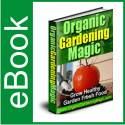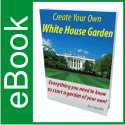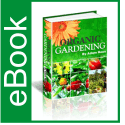So You Want to Start a Garden
So You Want to Start a Garden
Article by Fascha Oleyenkorvaiz
When you were a child you probably played in the dirt as often as you could. You dug holes in the ground, sculpted castles and raced matchbox cars around makeshift tracks. As a child, being allowed to play in the yard may have allowed you to have a grand imagination where you dreamed of adventures in other worlds. When we grow up, it is difficult to find time to play in the dirt. This is why so many adults willingly slave over the beginnings of their garden. As gardeners, you have an excuse to play and work in the dirt however often or little you like! If you have thought about beginning your own garden, here are some things you should do if you want to make sure your garden is successful.
Before you plant your first seed take a few days to improve your soil quality. Different patches of soil and dirt will have different nutrients and properties. The dirt that is already in your yard is probably not good enough to grow anything which is probably why you’re convinced you have a black thumb. Different plants require different dirt and soil conditions to thrive.
Put some work into the soil before you plant. The best way to prepare your garden soil is to spread organic matter over the top of it. Compost is the best for preparing soil but you can also use grass clippings and mulch; just make sure to put them out a few months before you start planting. Your plants will benefit from the nutrients left behind by the compost that you have spread. Most gardening is simply following a regular schedule. As time passes you will get into a routine and you will start to know instinctively what needs to be done in your garden each day. You will know how to check for signs of drying out, how often to add nutrients or compost to your garden and how often to weed. Put together a schedule of your own and then follow it. Many new gardeners fail to keep their gardens alive because they either don’t realize how much work is needed or they decide they don’t care about how much work is needed to keep a garden plot healthy.
The easiest plants to grow, especially if you are new to creating your own garden, are the following: sunflowers, marigolds, geraniums, pansies, day lilies, lettuce, cucumbers, tomatoes and peppers. Many people have had good luck with coneflowers, zinnias, cosmos and Russian sage.
There is no rule that says you have to choose from these lists for the first garden you grow. These are just the easiest plants to begin with when you are new to gardening. Once you have mastered “easy” plants you will have a better time with “harder” plants.
There is a lot of work involved in starting a garden but it is a lot of fun. If you take time beforehand to study and learn about gardening, there is no way you’re garden won’t be full of life. Delight in spending time in your garden! It’s a great excuse to get outside and play!
About the Author
If you are frustrated with landscape gardener, then you may not know about this highly effective approach to landscape gardener, yet. Avoid suffering because you never knew about botanical gardening – it is not your fault you didn’t know.

 November 17, 2011
November 17, 2011 







